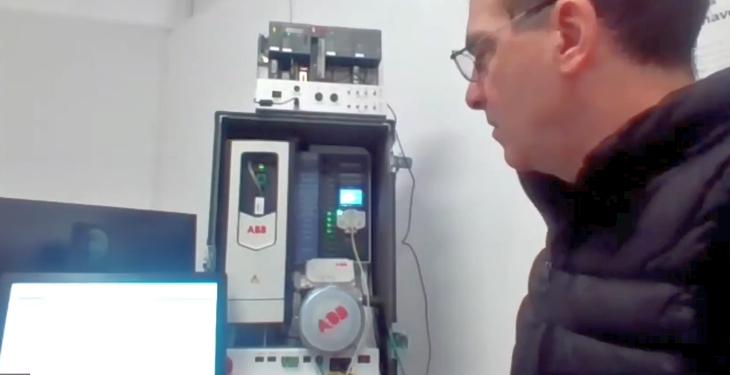ABB has a history of more than 90 years in Romania – “We are part of the digital transformation race of industry by providing support, both with services and products”, said Mihai Priboianu, Product Manager, ABB Motion, at the conference DigitALL 2021, organized by Energynomics.
“Romania needs interconnection, hyper-data connection, and digital transformation is the glue that provides the necessary optimization and automation. By giving them access to data, we support those who want to make informed decisions. In the past, IT was separated from the operational area and used mainly in the administrative area, but now, as the need is clear, IT is already deep integrated with the operational technology. We as ABB secure real-time access to data, to big data precisely,” said Mihai Priboianu.
At the conference, George Porumb, Managing Director at ABB’s partner Electrosoft, presented some of the equipment they implemented. “We are talking about thousands of drive systems in the Oil and Gas sector (6-7.000), from the crude processing area, to the refining, systems used for smart operation of the pumps. Added a different equipment, they have the ability to remotely monitor technical and production parameters. The base part is pumping with compressors and separators, centrifugal systems. In other industries, the systems can be even more complex,” said George Porumb, presenting ABB’s equipment.
He talked about an engine sensor that simplifies maintenance problems based on simple Bluetooth access from a mobile device. ”This sensor turns the classic engine into a smart one that communicates with the maintenance team. It can communicate in real time, but also at request, if necessary. This is an example of digital transformation,” Mihai Priboianu added.
The systems are redundant, ensuring operation even in the event of malfunctions, George Porumb also said. The data is secure and can be managed by the specialized department of the customer. Maintenance teams have access to data via an application, either on site or by using any mobile device or the ABB portal, from anywhere in the world.
Digital transformation increases productivity in smart factories
In Romania and in the region, ABB ensures the digital transformation within its partner companies. “This is a trend that has results – in smart factories productivity increases by many percentage points,” he said. Some industries are more active and one example is the chemical industry, where there is a commitment to double the digital transformation effort by 2025.
The main challenges are cyber security and the change of organizational culture mindset, in order to raise awareness among staff at operational level, but also at decision-making level, to manage the digital transformation in a transparent way, Mihai Priboianu added.
“In Romania, it is clear that education is needed to provide a bridge, a transition for when the real deep digital transformation enters the companies,” he said.
Priboianu explained that ABB’s priorities included understanding the needs of companies in various industries and providing services in the digital transformation area. ”We have, for example, the ABB Ability service, with real-time access to data on the operating status of the production system. Our monitoring systems also make predictions, aggregation, and data analysis to provide information about what might happen in the near future with a specific equipment. This approach leads to optimization of production and predictive maintenance.”
DigitALL 2021 was organized by Energynomics, in partnership with reputed organizations such as AHK Romania, CIO Council, BusinessMark with the support of our partners: ABB România, ACE – Industrial Software Solutions, Enevo Group, Safetech Innovations.

